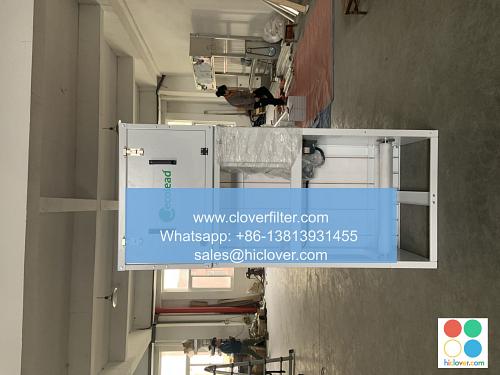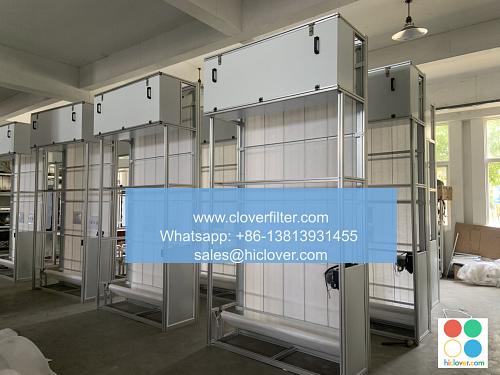The Future of Industry and Air Filter Regulations: A Glimpse into the Future

The industrial sector is on the cusp of a revolution, with emerging trends and technologies set to transform the way businesses operate. One crucial aspect of this transformation is the increasing focus on air quality and the regulations surrounding it. In this article, we’ll delve into the future of industry and air filter regulations, exploring the key drivers,
Sustainable Manufacturing
practices, and the impact on various application areas.
Driving Forces Behind Air Filter Regulations
The primary drivers behind the evolution of air filter regulations are
Environmental Sustainability
,
Occupational Health and Safety
, and
Energy Efficiency
. As governments and organizations prioritize these concerns, we can expect to see stricter standards and more stringent enforcement. The
Internet of Things (IoT)
and
Artificial Intelligence (AI)
will also play a significant role in shaping the future of air filter regulations, enabling real-time monitoring, predictive maintenance, and optimized performance.
Application Areas and Opportunities
The impact of air filter regulations will be felt across various industries, including:
-
**Industrial Manufacturing**
: Where
**Air Purification Systems**
and
**HEPA Filters**
will become increasingly important for maintaining a safe and healthy work environment.
-
**Commercial Buildings**
: Where
**HVAC Systems**
and
**Air Filtration Solutions**
will be designed to meet stringent indoor air quality standards.
-
**Healthcare Facilities**
: Where
**Ultra-Fine Air Filters**
and
**Sterilization Systems**
will be crucial for preventing the spread of infections and maintaining a sterile environment.
-
**Aerospace and Defense**
: Where
**High-Tech Air Filtration Systems**
and
**Nanofiber Technology**
will be used to protect personnel and equipment from hazardous airborne particles.
Emerging Trends and Technologies
As air filter regulations continue to evolve, we can expect to see the emergence of new technologies and trends, including:
-
**Nanotechnology**
: Enabling the development of more efficient and effective air filters.
-
**Biotechnology**
: Providing innovative solutions for air purification and sterilization.
-
**Energy Harvesting**
: Allowing air filtration systems to become more energy-efficient and self-sustaining.
-
**4D Printing**
: Enabling the creation of complex air filter geometries and structures.
Conclusion
The future of industry and air filter regulations is inextricably linked to the pursuit of
Sustainable Development
,
Environmental Protection
, and
Human Wellbeing
. As we look to the future, it’s clear that air filter regulations will play an increasingly important role in shaping the industrial landscape. By embracing emerging trends and technologies, businesses can stay ahead of the curve, ensuring compliance with regulations while driving innovation and growth in the years to come.
You haven’t provided a question or topic for me to address. Please provide more context or clarify what you would like to discuss, and I will do my best to provide a helpful and informative response. What’s on your mind?


